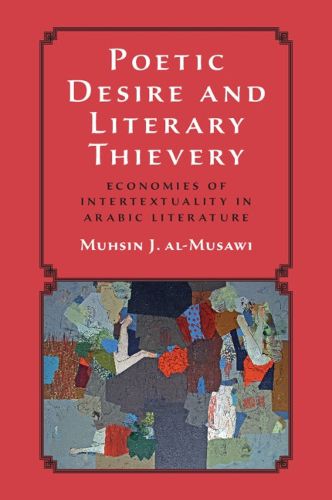Readings Newsletter
Become a Readings Member to make your shopping experience even easier.
Sign in or sign up for free!
You’re not far away from qualifying for FREE standard shipping within Australia
You’ve qualified for FREE standard shipping within Australia
The cart is loading…






How do we define plagiarism in literature? In this wide-ranging and innovative study, Muhsin J. al-Musawi examines debates surrounding literary authenticity across Arabic and Islamic culture over seven centuries. Al-Musawi argues that intertextual borrowing was driven by personal desire alongside the competitive economy of the Abbasid Islamic Empire. Here, accusations of plagiarism had wide-ranging consequences, as competition among poets and writers grew fierce, while philologists and critics served as public arbiters over controversies of alleged poetic thefts. Taking in an extensive remit of Arabic sources, from Persian writers to the poets of Andalusia and Morocco, al-Musawi extends his argument all the way to Ibrahim ?Abd al-Qadir al-Mazini's writing in Egypt and the Iraqi poet Nazik al-Mala?ikah's work in the twentieth century to present 'theft' as a necessary condition of creative production in Arabic literature. As a result, this study sheds light on a vast yet understudied aspect of the Arabic literary tradition, while raising important questions surrounding the rising challenge of artificial intelligence in matters of academic integrity.
$9.00 standard shipping within Australia
FREE standard shipping within Australia for orders over $100.00
Express & International shipping calculated at checkout
Stock availability can be subject to change without notice. We recommend calling the shop or contacting our online team to check availability of low stock items. Please see our Shopping Online page for more details.
How do we define plagiarism in literature? In this wide-ranging and innovative study, Muhsin J. al-Musawi examines debates surrounding literary authenticity across Arabic and Islamic culture over seven centuries. Al-Musawi argues that intertextual borrowing was driven by personal desire alongside the competitive economy of the Abbasid Islamic Empire. Here, accusations of plagiarism had wide-ranging consequences, as competition among poets and writers grew fierce, while philologists and critics served as public arbiters over controversies of alleged poetic thefts. Taking in an extensive remit of Arabic sources, from Persian writers to the poets of Andalusia and Morocco, al-Musawi extends his argument all the way to Ibrahim ?Abd al-Qadir al-Mazini's writing in Egypt and the Iraqi poet Nazik al-Mala?ikah's work in the twentieth century to present 'theft' as a necessary condition of creative production in Arabic literature. As a result, this study sheds light on a vast yet understudied aspect of the Arabic literary tradition, while raising important questions surrounding the rising challenge of artificial intelligence in matters of academic integrity.